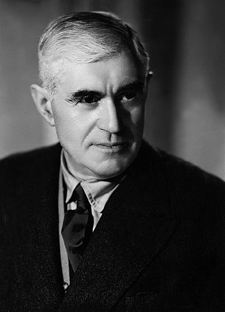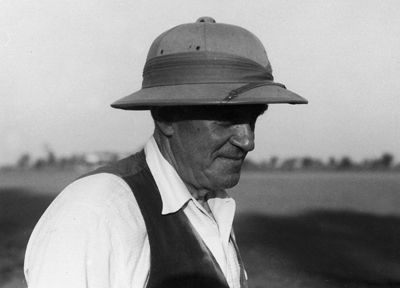|
||||||||||||||||||||||||||||||||||||||||||||||||||||||||||||||||||||||||||||||
|
||||||||||||||||||||||||||||||||||||||||||||||||||||||||||||||||||||||||||||||
| The approach fell flat but in November 1946 news arrived that an American, Vincent J. Schaefer, had filed a patent in the United States for artificial rain using his same method. Silvio Corradi had designed it at least two years before as testified by Lelli. In the postwar years, despite the bitterness for not having received recognition of his rain system he continued to insist on experimentation of his channeling system of waterways for which in 1949-1950 he finally received some official recognition. This period also saw the birth of his interest for astronomy. As a keen observer of everything around him he wondered what were the celestial motions. And following as always his instinct, rather than looking for answers in scientific texts, he decided to study the problem directly observing celestial phenomena. After studies lasting years he developed a new astronomical theory. This notorious theory brought him in to contact with several scientific groups, but his theory was welcomed with skepticism. Only abroad there was interest and recognition of the genius of many of his insights, a fate common to many Italian scholars and researchers. To demonstrate celestial motion according to his theory he created a planetarium which could reproduce all the complex movements made by celestial planets. It differed from all other planetariums constructed to explain the Copernican theory for one fundamental characteristic: that of taking into account both the motion of rotation and the motion of revolution of the earth long with the motion of the moon. |
||||||||||||||||||||||||||||||||||||||||||||||||||||||||||||||||||||||||||||||
| Corradi's interests were not only for the outside world but also regarding the functioning of the human body. This was clearly demonstrated when he was wounded in the war. In further studies of human physiology, and in particular the relationship between combustion and cellular assimilation, he developed a theory regarding the formation of tumors. This researcher from Parma did not propose any treatment for cancer but offered a key to understanding the causes that generate tumors and the possible context in which tumors develop. In the elaboration of his theory on breathing and oxygen therapy the contribution made by his sister Anna was crucial. A graduate in chemistry and pharmacy, she changed from a skeptical opponent into a valuable contributor and tireless supporter of all his inventions. |
||||||||||||||||||||||||||||||||||||||||||||||||||||||||||||||||||||||||||||||
| His theories about the channeling of rivers were the most examined, even if the experimental application had to be partially self-financed given the lack of public resources. The astronomical theories earned him some feedback from the media. Attracted by this remarkable figure of country gentleman inventor , journalists coined from time to time differing eccentric definitions. Less striking due to its relation with his farming activities, is his invention of a method of cultivating wheat which lowered the amount of seed sown and more than doubled the amount of grain at harvest. In this brief biography the major interests of Silvio Corradi who made other inventions and discoveries have been considered. Due to the ageing process his activity forcibly slowed, until his death in 1970. The mind of Silvio Corradi was so fertile in ideas, theories and discoveries that this aspect of his character at the end overrides all others. It overshadows the other sides of his character, such as tenacity, modesty and devotion to his family, which was reciprocated. His was a singular fate. His curiosity for the new and the unknown led him on unfamiliar roads. His irrepressible desire to communicate his insights to others led him to clash with the distrust and prejudice that associates the inventor of an idea with being extravagant or crazy rather than a genius. |
||||||||||||||||||||||||||||||||||||||||||||||||||||||||||||||||||||||||||||||
|
||||||||||||||||||||||||||||||||||||||||||||||||||||||||||||||||||||||||||||||

